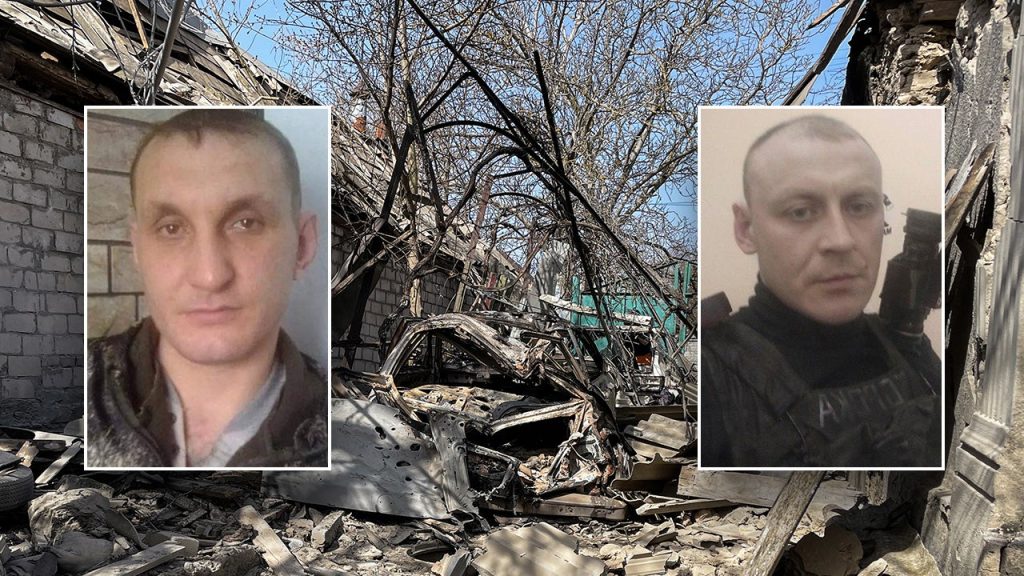Russian authorities arrested two Russian soldiers in Kherson, Moscow-occupied part of Ukraine, for their involvement in a drunken killing spree involving the murder of at least five people. Alexander Kaygorodtsev and Alexander Osipov, members of the 144th Guards Motor Rifle Division, admitted to the killings and hiding the bodies of additional victims. The victims included a 65-year-old and a woman who was shot in the stomach before her house was set on fire. The soldiers used grenades and fire to try and destroy the evidence of their crimes. The motives behind the killings, which also included other Russian servicemen, remain unclear for investigators, causing confusion. One victim, Lyubov Tymchak, was shot because she refused to let the soldiers take over an empty house.
While no charges have officially been opened against the two soldiers, reports suggest they will face an investigation from the 126th Military Investigation Department of the Russian Investigative Committee. Kaygorodtzev had a prior conviction for murder and participation in drug trafficking, serving a previous sentence. If convicted of the new murders, he could face life in prison. The killings in the Russian-occupied regions of Ukraine are seen as part of the ongoing violence and turmoil within those areas. Instances of crimes committed against Ukrainian residents, including attacks on the LGBTQ+ population in the city of Kherson, have been documented. There have been reports of deliberate targeting of queer residents by Russian forces, leading to fear among survivors to contact law enforcement.
Human rights NGO watchdog Projector, in partnership with OutRight International, detailed attacks on LGBTQ+ residents in Kherson between March and September 2023, with claims that Russian forces specifically targeted queer individuals. The survivors of these crimes have often avoided contacting law enforcement out of fear of lack of support. In a separate incident, the body of a Ukrainian Orthodox priest, Father Stepan, was found bruised and possibly executed in Kalanchak, within the Kherson region. Two days prior, Russian forces had detained him, and the local bishop alleged that he was tortured to death by the troops. Forum 18, a Norwegian news agency, reported on the incident. These incidents highlight the ongoing violence and human rights abuses in the Russian-occupied regions of Ukraine.
The killings by the two Russian soldiers in Kherson are a part of a broader pattern of violence within the Russian-occupied territories of Ukraine. Reports have brought to light a number of crimes committed against Ukrainian residents, including attacks on the LGBTQ+ community in Kherson. The actions of the soldiers, including the targeting of both civilians and other Russian servicemen, have brought attention to the significant challenges faced by the civilian population living under occupation. The lack of official charges against the soldiers highlights the complexity of addressing these crimes and holding perpetrators accountable.
The lack of charges against the soldiers raises questions about accountability and justice for the crimes committed in the Russian-occupied regions of Ukraine. The ongoing violence and turmoil within these areas, as highlighted by the killings and attacks on the LGBTQ+ community, underscore the need for increased attention and protection for the vulnerable populations living under occupation. The fear among survivors of contacting law enforcement due to lack of support further exacerbates the challenges in addressing and preventing further human rights abuses. The incidents, including the murder of the Orthodox priest, serve as a grim reminder of the atrocities being committed in the region, necessitating immediate action to protect the civilian population.
The brutal killings and targeted attacks on LGBTQ+ residents in Kherson are emblematic of the larger human rights crisis unfolding in the Russian-occupied territories of Ukraine. The lack of accountability for the soldiers involved in the killings, as well as the broader pattern of violence and abuse, underscores the urgent need for international intervention and support to protect the civilian population. The ongoing atrocities, including the torture and murder of Father Stepan, highlight the dire situation faced by the residents of these regions and the urgent need for justice and accountability to prevent further bloodshed and human rights violations.


